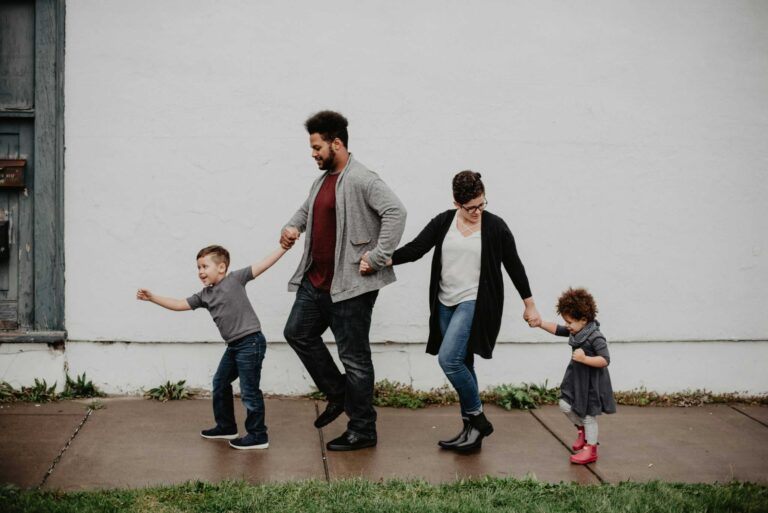7 Common Relationship Fears (And How Experts Say to Face Them Together)
Relationships are the ultimate chemistry experiment. Add a little bit of dopamine, oxytocin, and “what did they really mean by that text?” They’re thrilling, messy, and occasionally explosive, like a lab beaker full of feelings. And while we’d love to believe love is just a simple formula, sometimes relationship fears often sneak in and throw off our emotional equilibrium, and make us question the entire hypothesis.
But here’s the reframe: fear isn’t the villain. It’s the internal alarm system letting us know where we’re tender, where we crave connection, and where healing is still in progress. So let’s look at 7 Common Relationship Fears (And How Experts Say to Face Them Together).
7 Common Relationship Fears

1. Fear of Rejection
This is the “What if they see the real me and nope out?” spiral. It’s the fear that once your partner gets past the curated version of you, the quirks, the baggage, the existential dread, they’ll ghost you faster than a bad Tinder match.
How to face it together: Drop the emotional cosplay. Real intimacy isn’t built on perfection; it’s built on presence. Talk to your partner about your insecurities. This is a way to let your partner meet you with empathy, and remember: vulnerability is the VIP pass to connection. If they’re still here after your weird sleep rituals and your 3 a.m. philosophical tangents, they’re probably not going anywhere.
2. Fear of Abandonment
This one’s the emotional equivalent of refreshing your partner’s “last seen” status and spiraling. It’s the fear that they’ll leave, physically or emotionally, without warning, and it often shows up as clinginess, jealousy, or hypervigilance.
How to face it together: Talk attachment styles like it’s your favorite podcast episode. Build rituals of connection (yes, even sending each other memes counts) and prioritize consistency over grand gestures. If this fear is rooted in past trauma, therapy isn’t just helpful—it’s a relationship upgrade. Emotional security isn’t a luxury; it’s a necessity.
3. Fear of Vulnerability
Letting someone see your emotional underbelly? Terrifying. Many people fear that opening up will lead to rejection or judgment, so they keep things surface-level, like emotional small talk with a side of avoidance.
How can you face this fear together? Start with micro-vulnerabilities. Share a weird childhood memory, a recent insecurity, or your spicy take on pineapple pizza. Respond with curiosity, not critique. Vulnerability isn’t weakness; it’s the Wi-Fi signal for emotional intimacy. And yes, sometimes it buffers. That’s okay.
4. Fear of Conflict
Some folks treat conflict like a haunted house, avoid it, tiptoe around it, and hope it disappears. But spoiler: unresolved tension doesn’t vanish. It just mutates into resentment with a side of passive-aggression.
How to face it together: Approach the conflict in a new light. Think of it as a puzzle that you both have to work on together to solve. Use “I feel” statements, active listening, and a shared goal mindset. Set ground rules (no yelling, no sarcasm, breaks allowed) and treat disagreements like boss battles—not personal attacks. You’re not adversaries—you’re co-op players trying to level up.
5. Fear of Losing Independence
This fear says, “If I get too close, I’ll disappear.” It’s common among people who’ve been burned by controlling dynamics or just really value their solo time. The idea of merging lives can feel like emotional identity theft.
How to face it together: Celebrate your individuality like it’s a national holiday. Talk about boundaries, goals, and the time apart. Remember to support each other’s independence while building a life together. Interdependence is the sweet spot, connected, but not consumed. You’re not losing yourself; you’re expanding the map.
6. Fear of Not Being Enough
Imposter syndrome, but make it romantic. This fear whispers that you’re not smart enough, hot enough, successful enough—or just plain “enough”—for your partner. Cue the comparison spiral and emotional self-sabotage.
How to face it together: Practice mutual admiration daily by complimenting each other’s strengths, challenge the internal scripts that fuel insecurity, and remember: your partner chose you, not your highlight reel. You’re not auditioning, you’re already cast. Own it.
7. Fear of the Relationship Ending
Even in stable relationships, there can be the “what if it all falls apart?” anxiety lingering in the shadows. The fear that something like infidelity, an emotional drift, or even a tragedy could end the connection is something that many couples struggle with.
How to face it together: Talk about it. Seriously. Discuss your hopes, fears, and what commitment means to each of you. Build a shared vision for the future and revisit it often. Facing the possibility of loss doesn’t weaken the bond; it makes you appreciate the now like a limited-edition comic book. Handle with care, read often.
Final Thoughts: Fear Isn’t a Flaw—It’s a Feature
Fear in relationships isn’t a glitch; it’s part of the emotional operating system. Fear can show us where we’re growing, where we’re healing, and where we need each other most. The goal isn’t to eliminate fear; it’s to understand it, name it, and face it together with compassion, curiosity, and a little nerdy flair.
Because love isn’t about being fearless. It’s about being brave, emotionally fluent, and just sassy enough to call out your partner’s avoidance tactics and still make them laugh.
Disclaimer: This article is intended for informational purposes only and does not constitute professional advice, diagnosis, or treatment. If you are experiencing significant relationship challenges or emotional distress, please consult a licensed therapist, counselor, or mental health professional.





